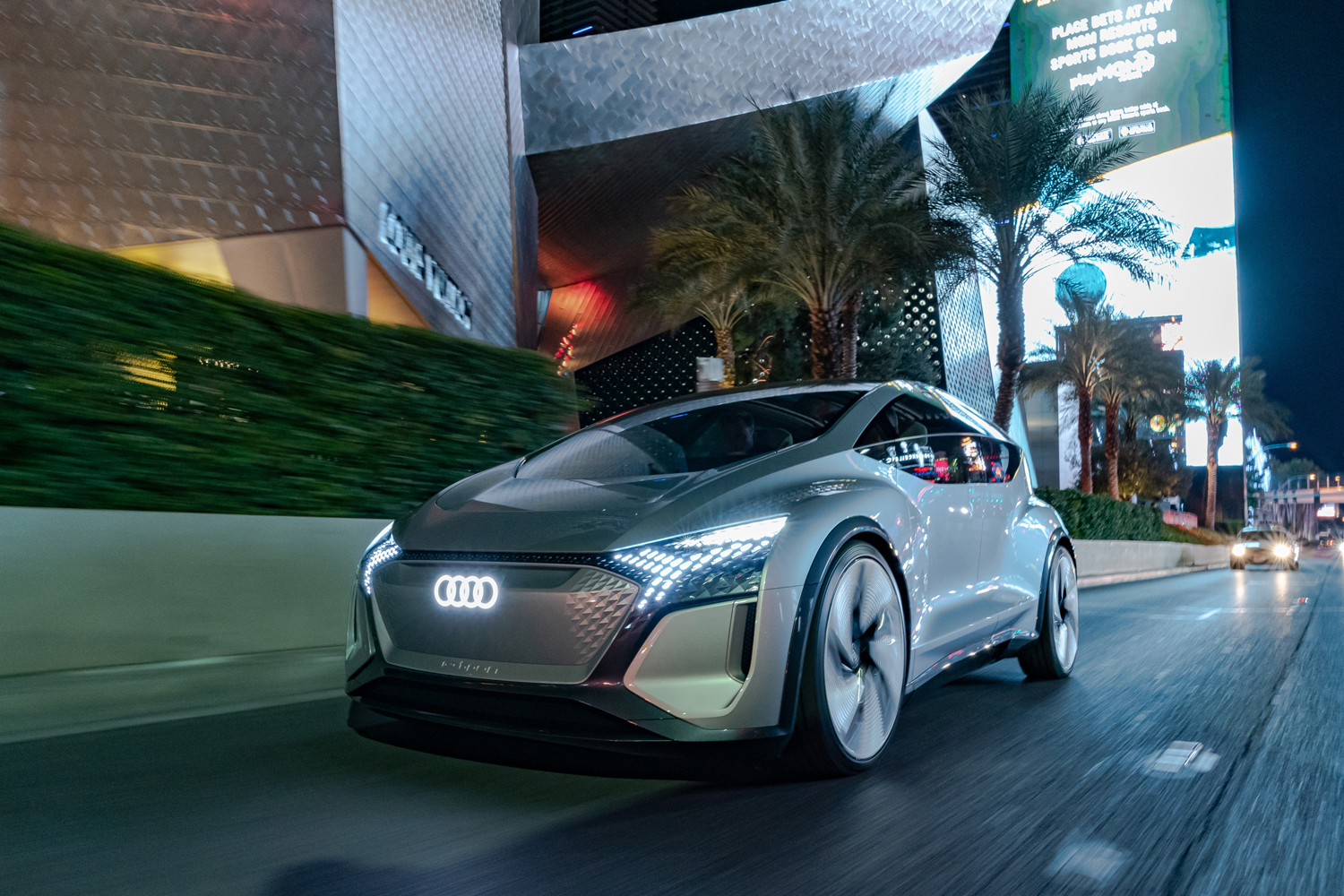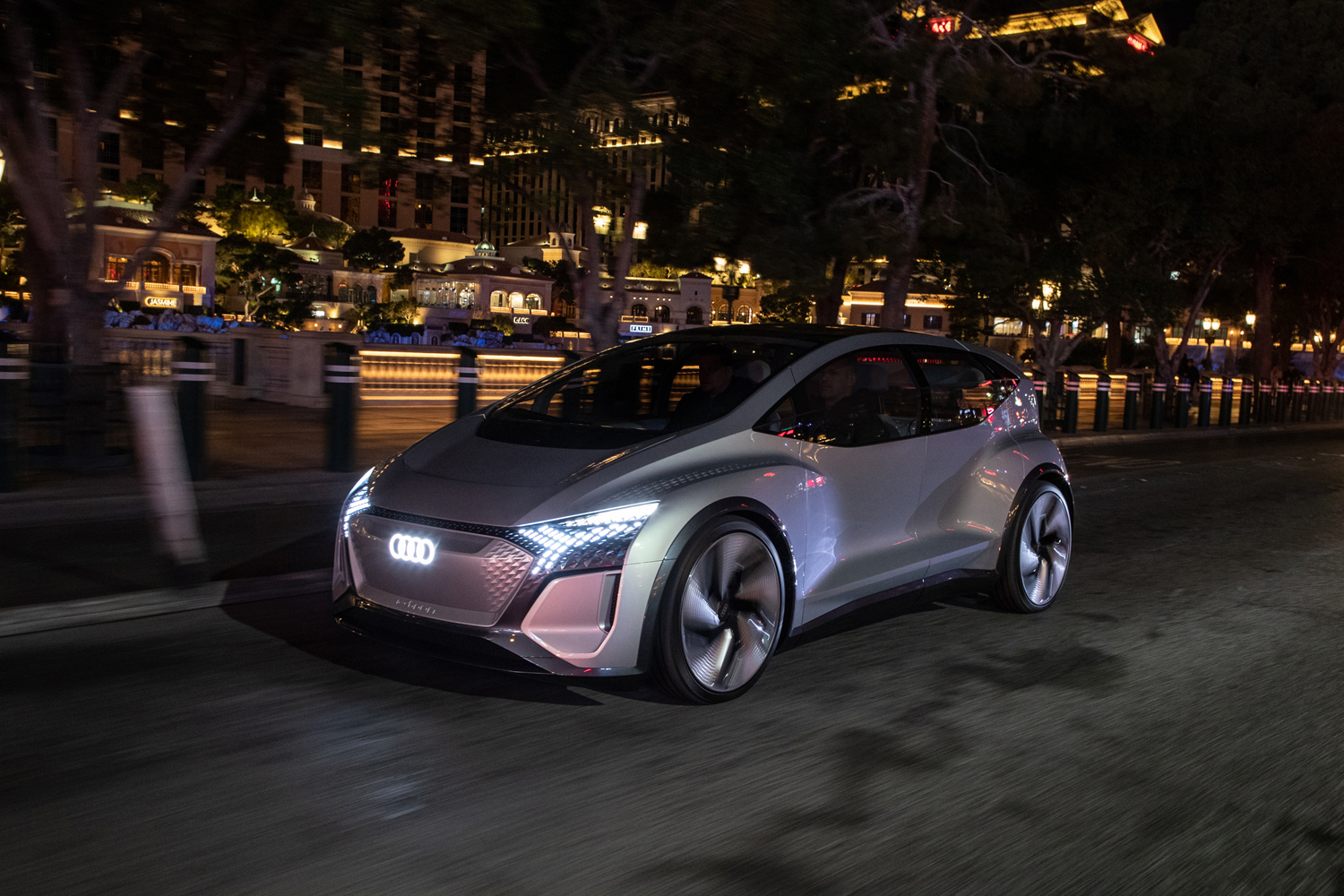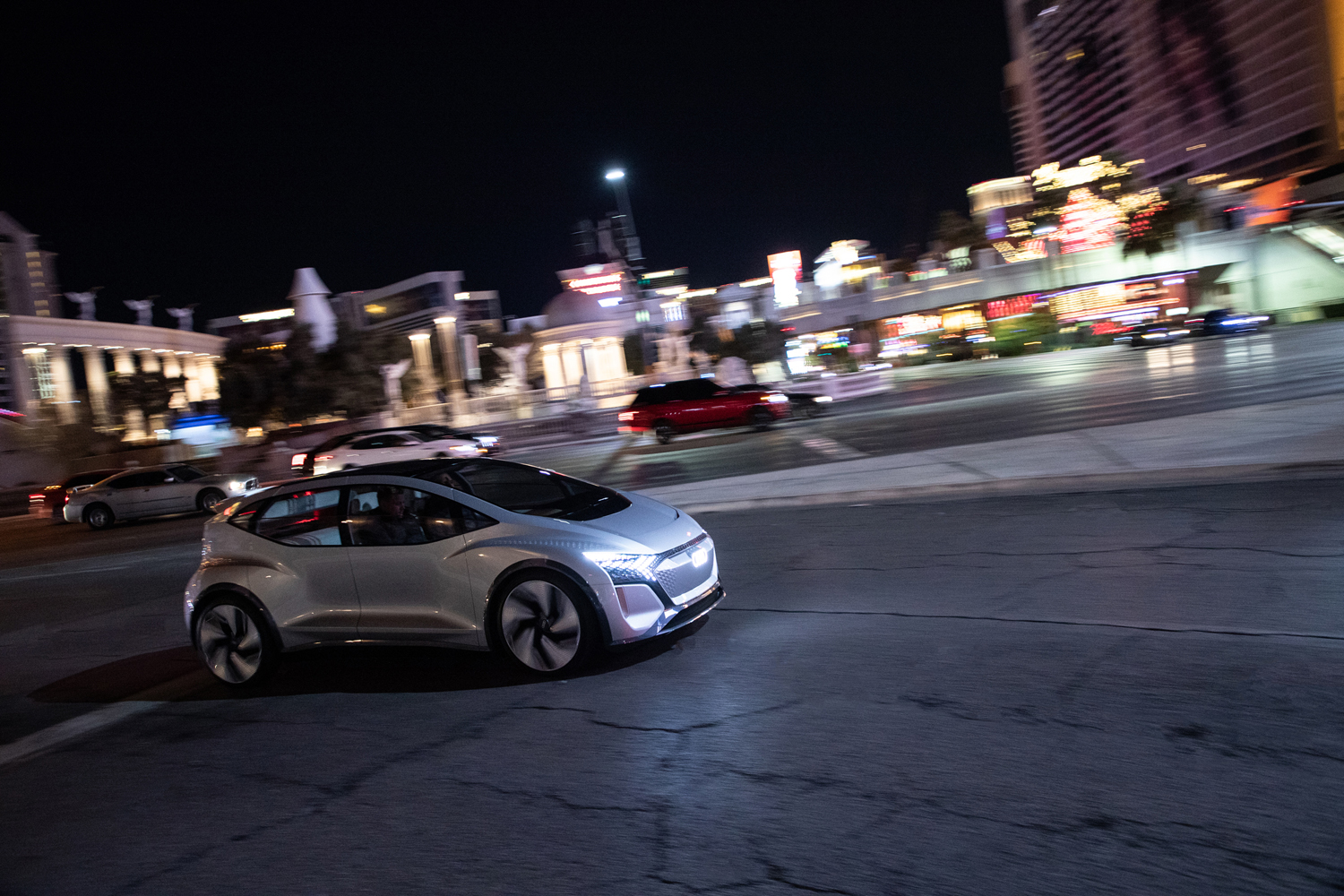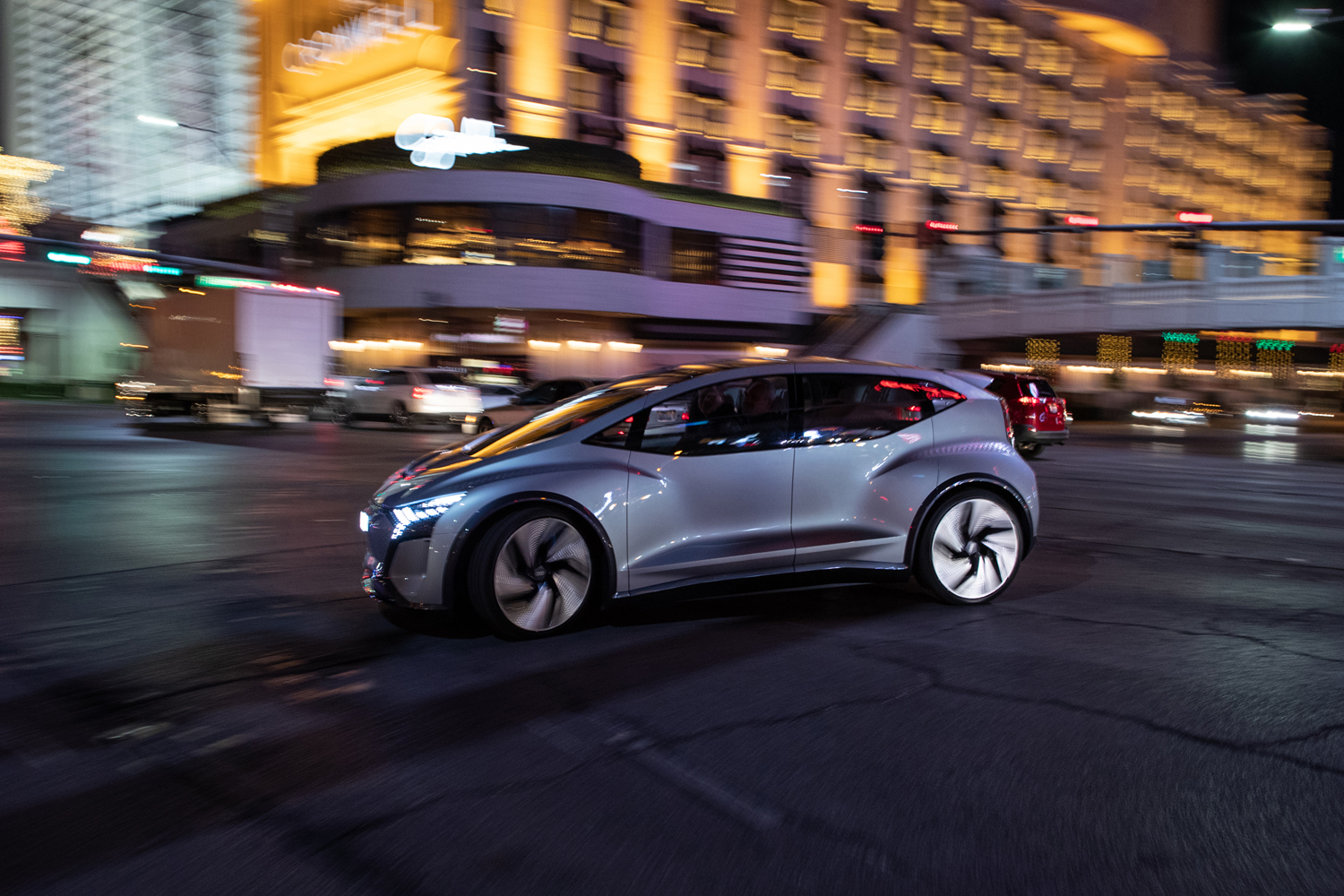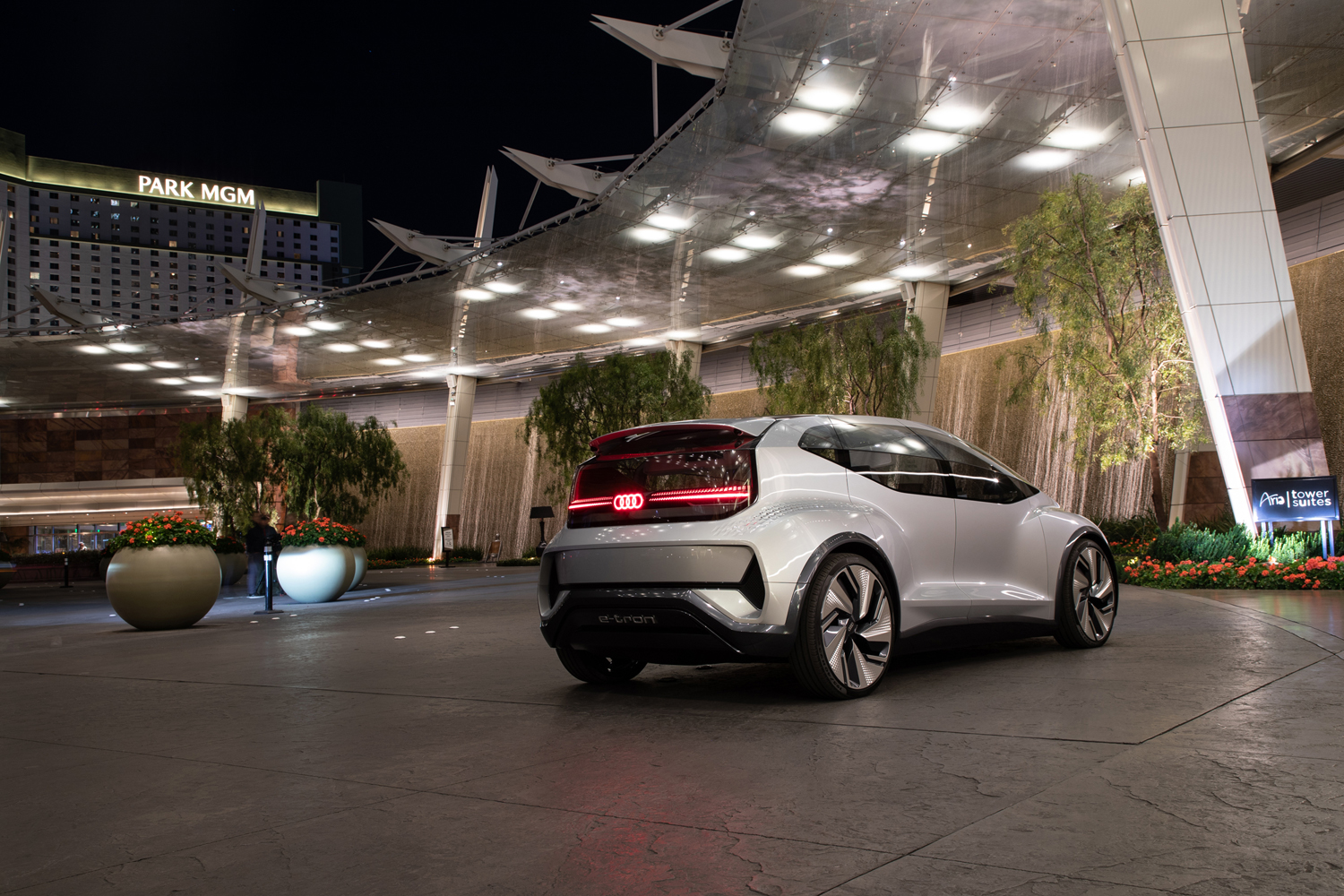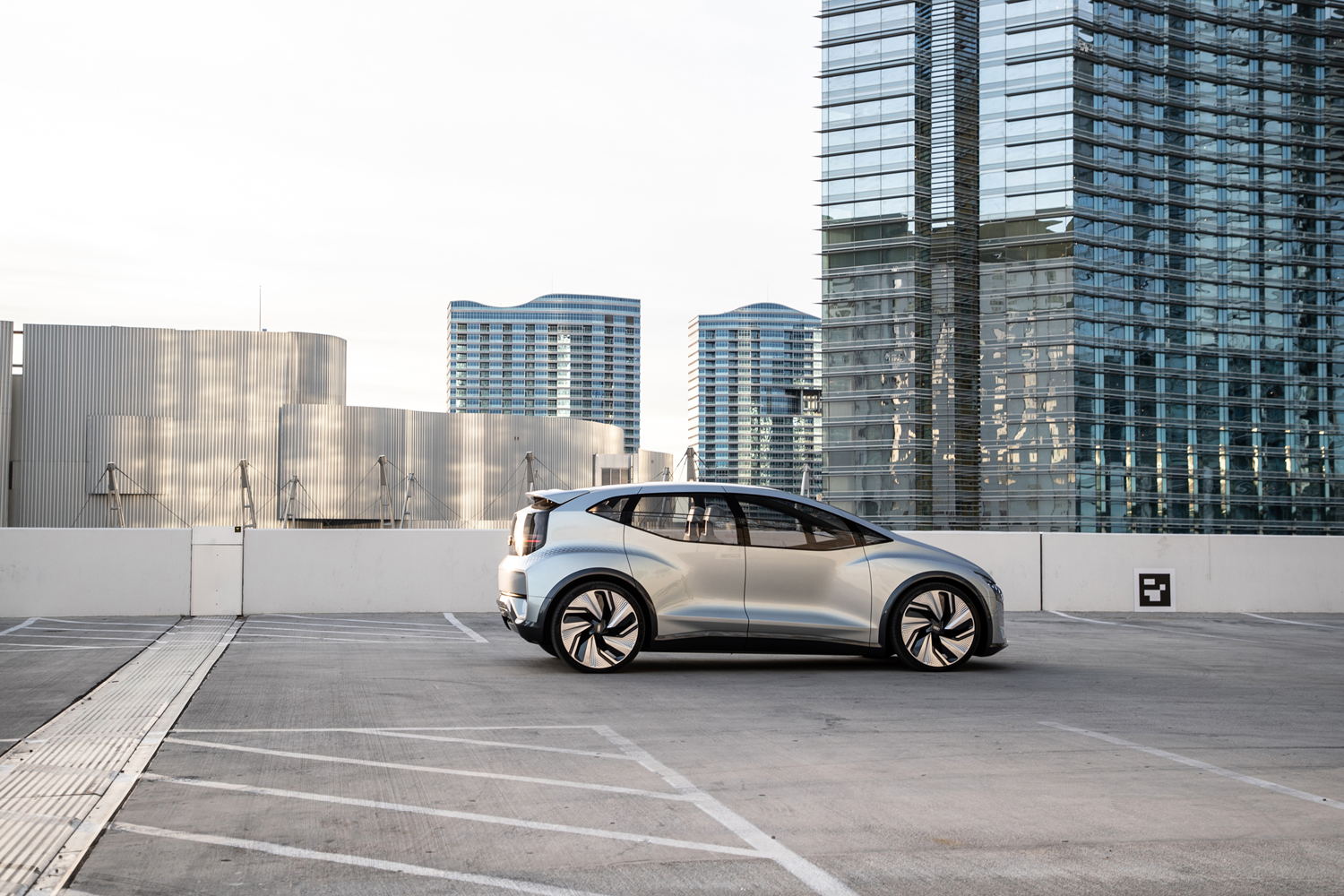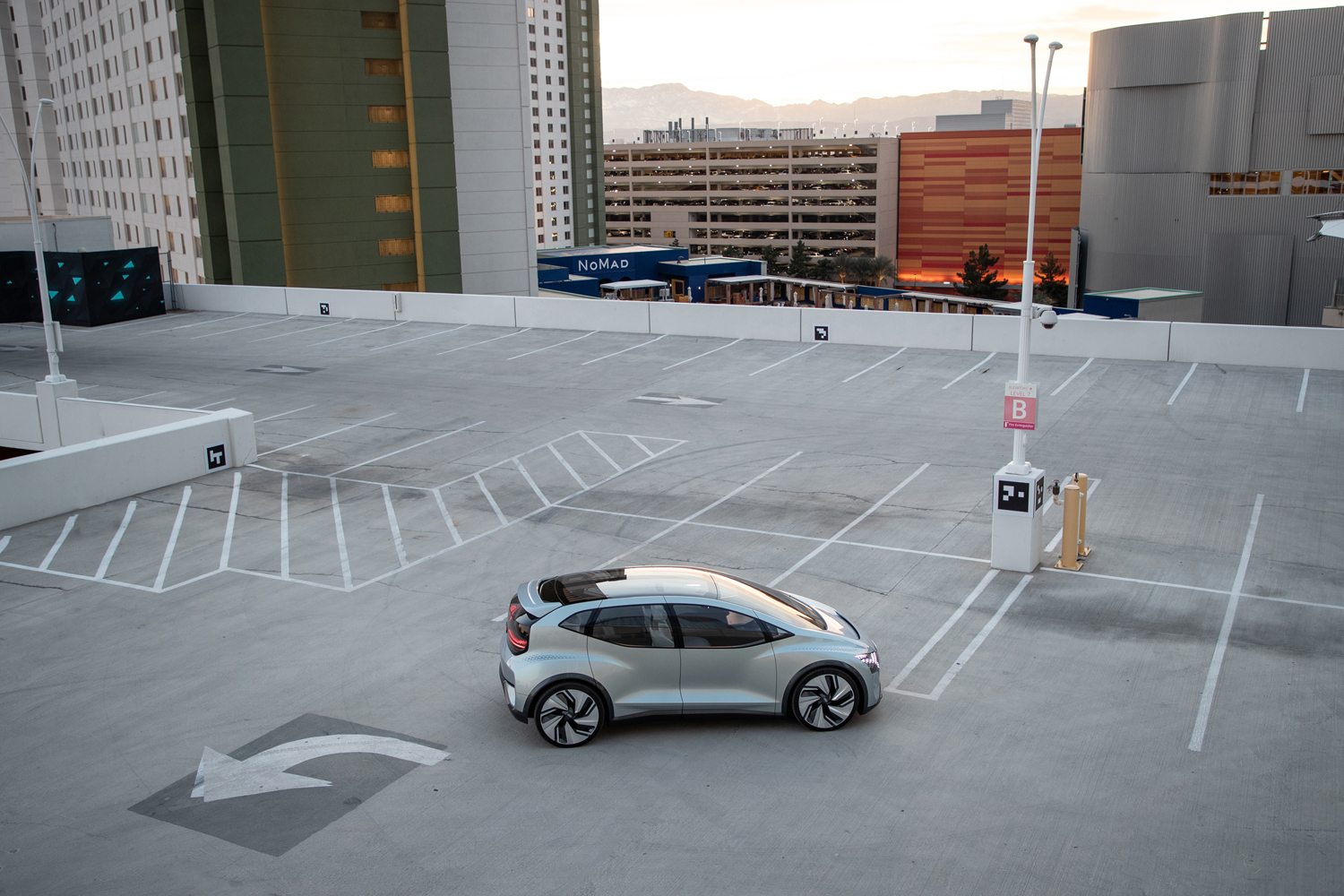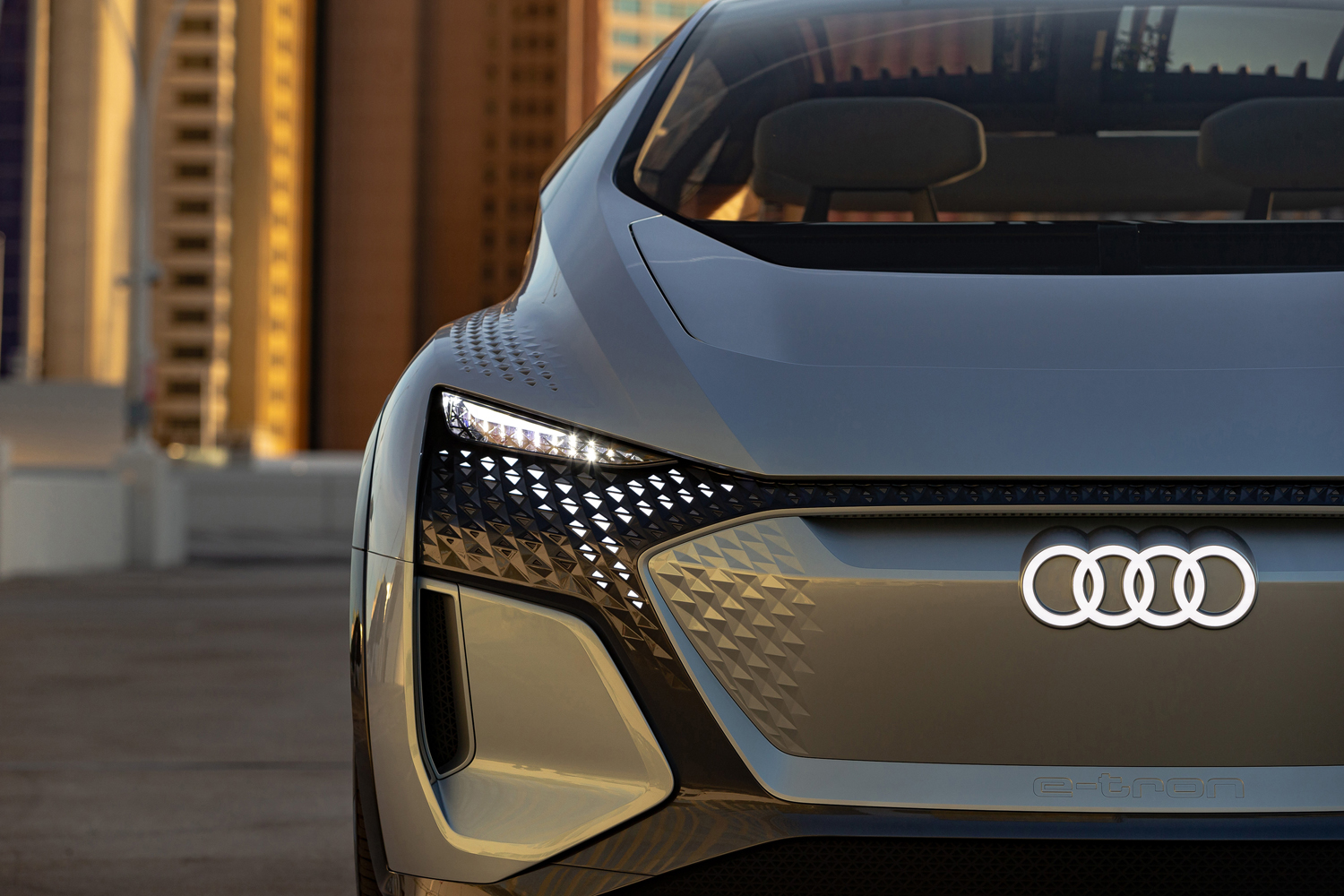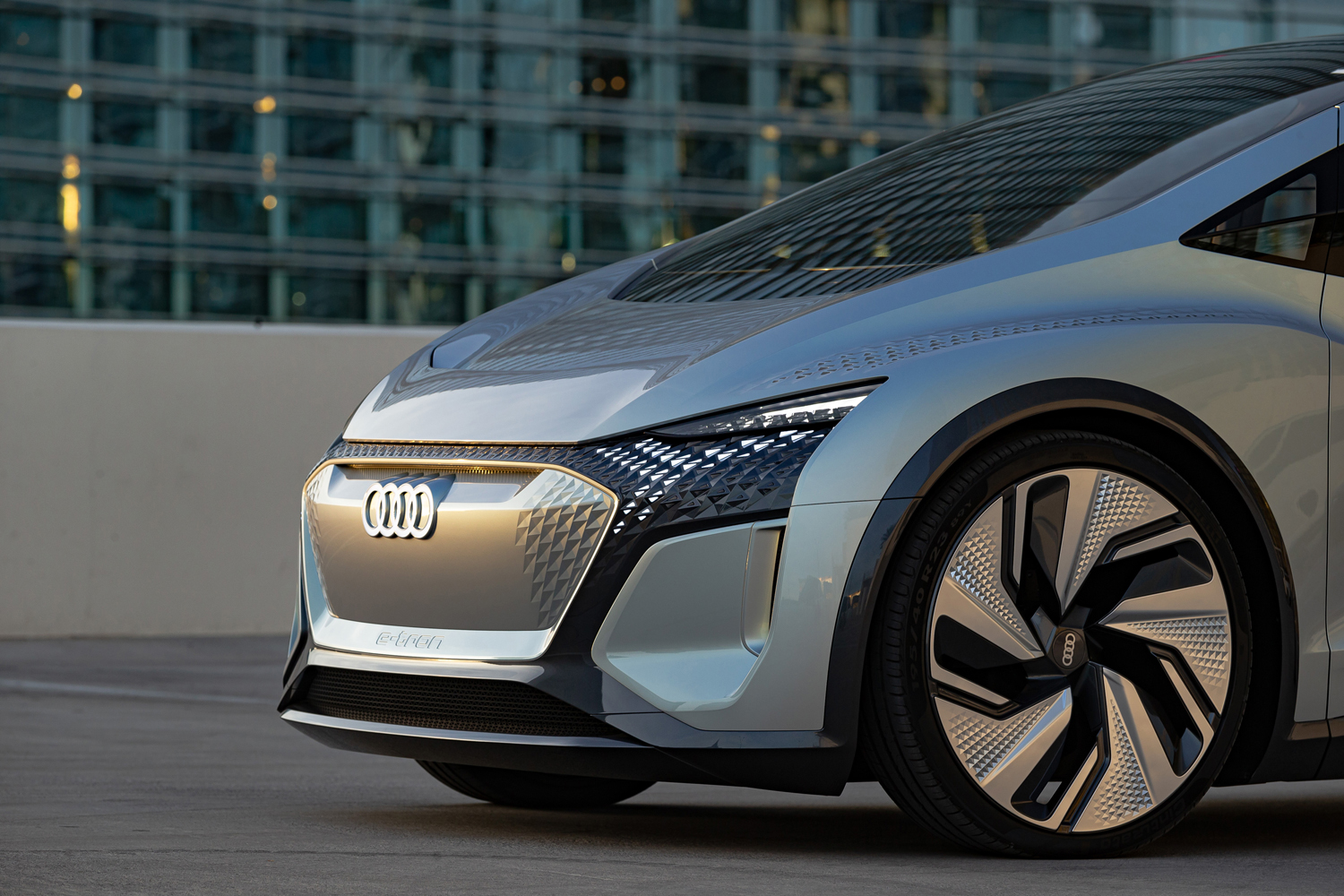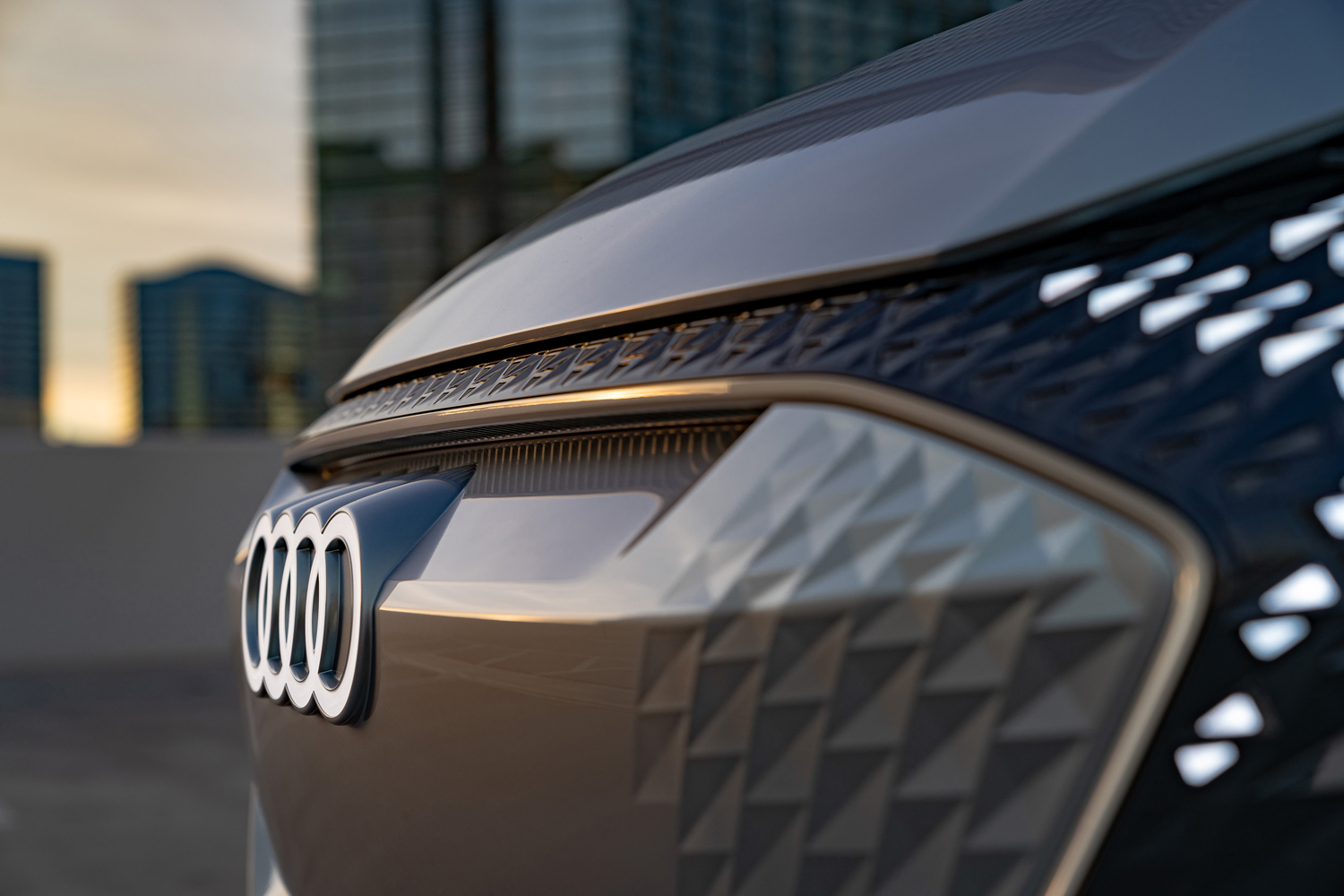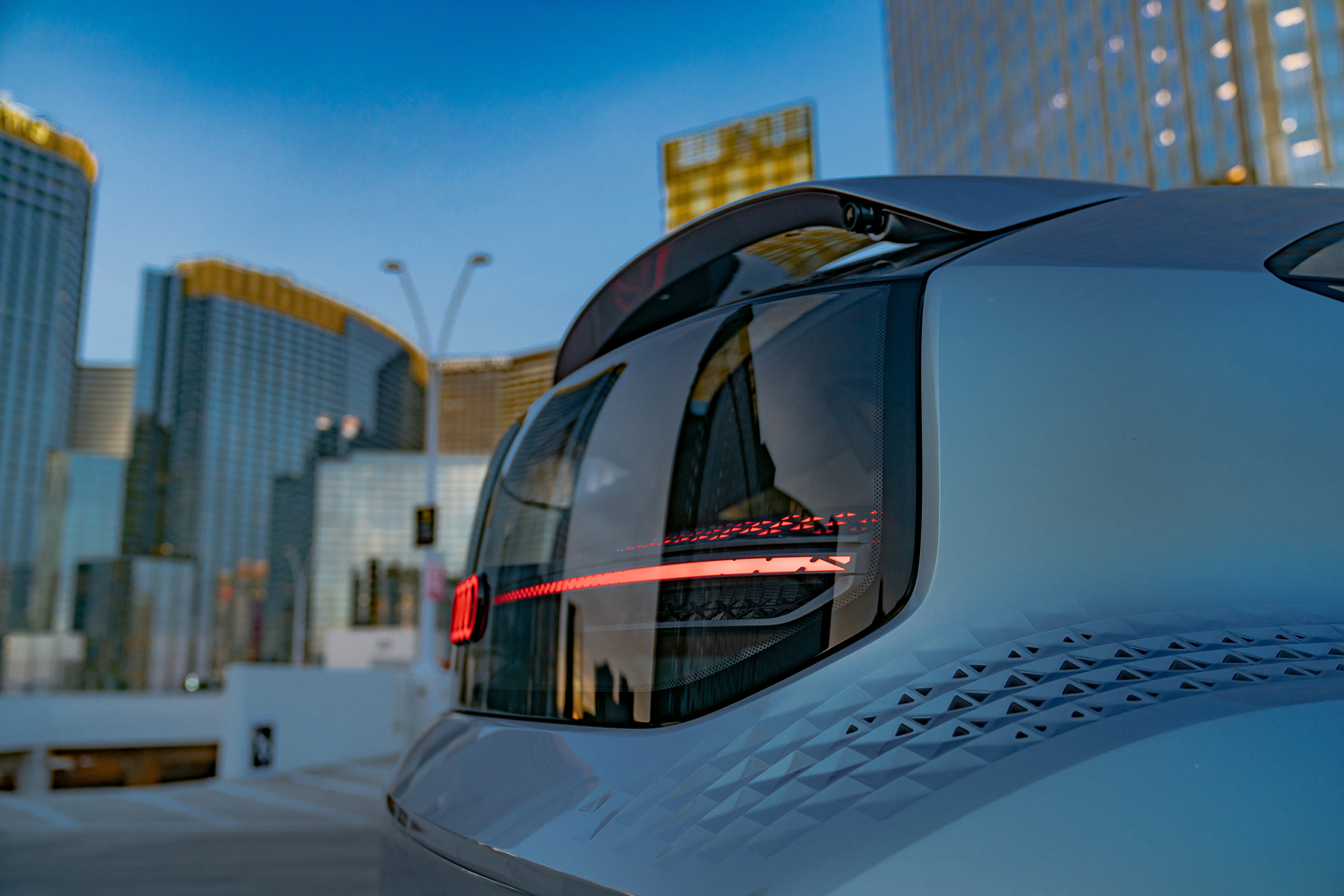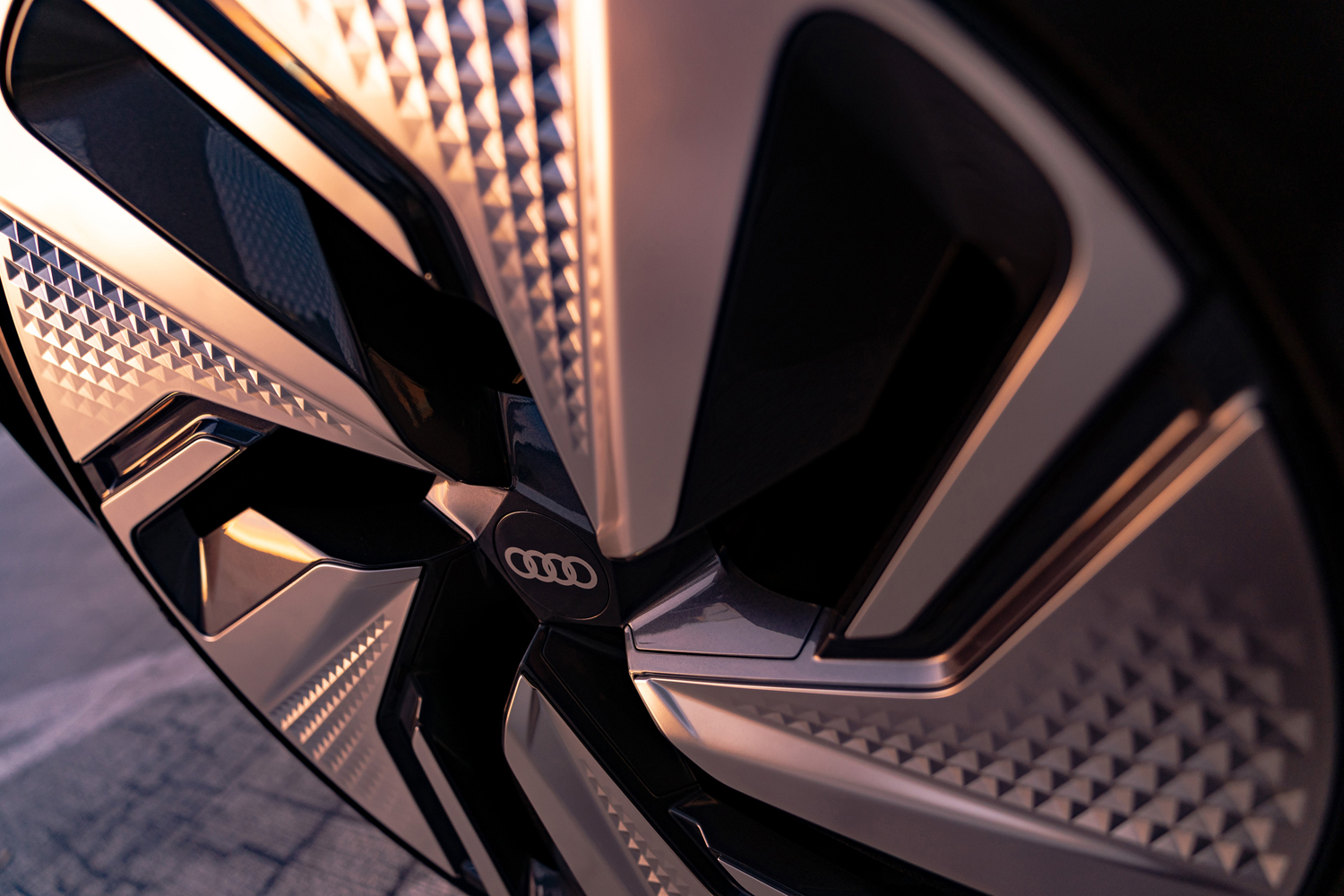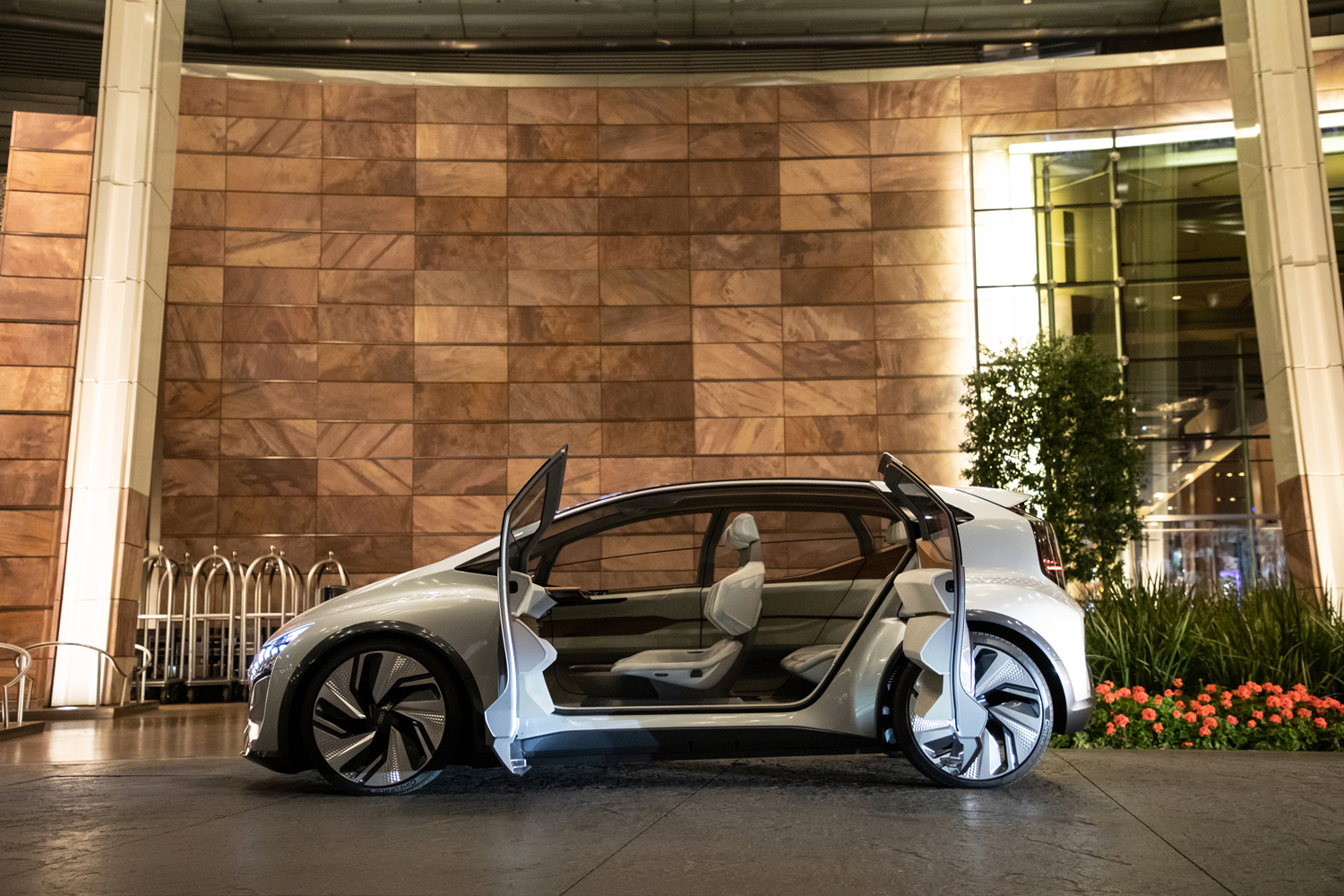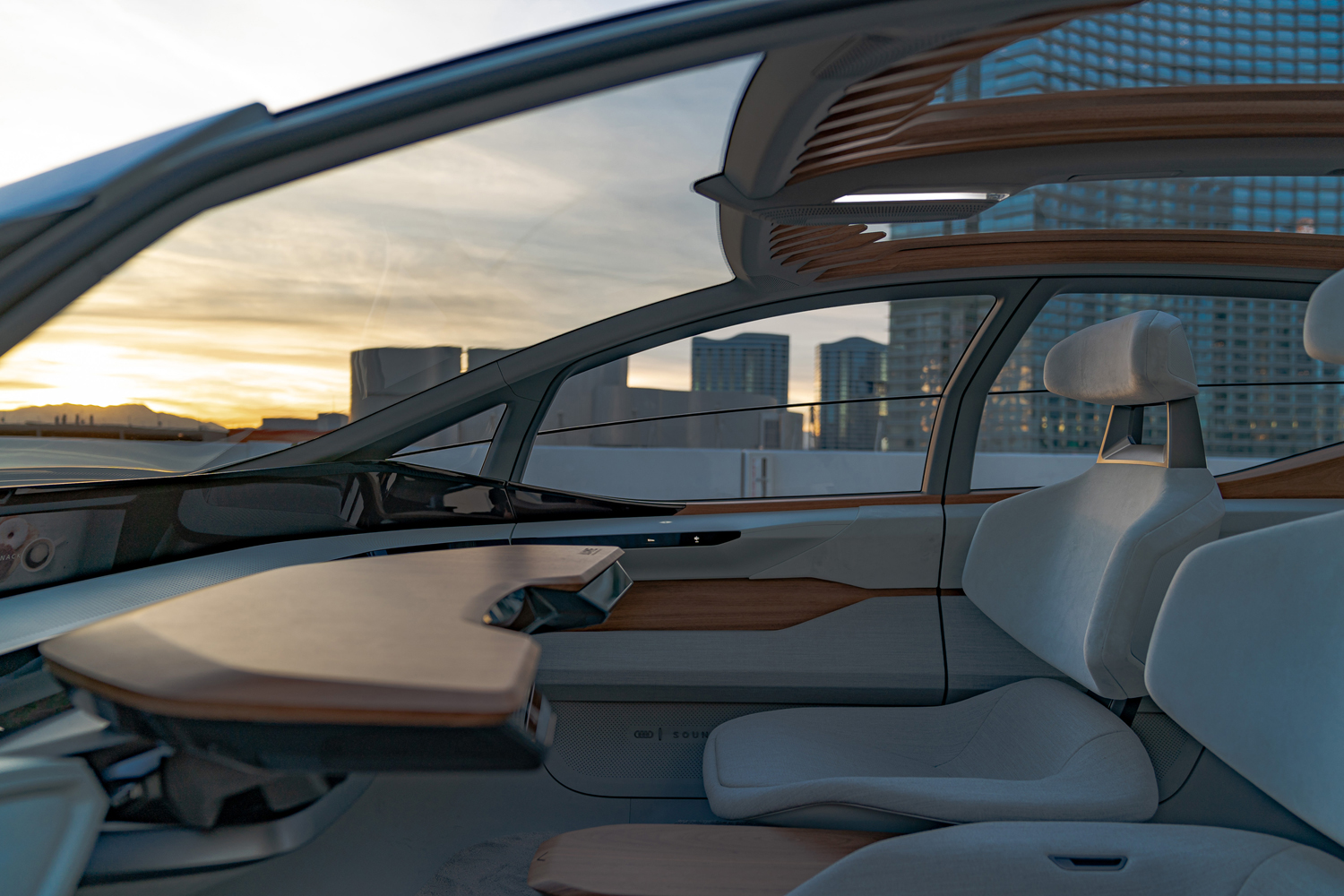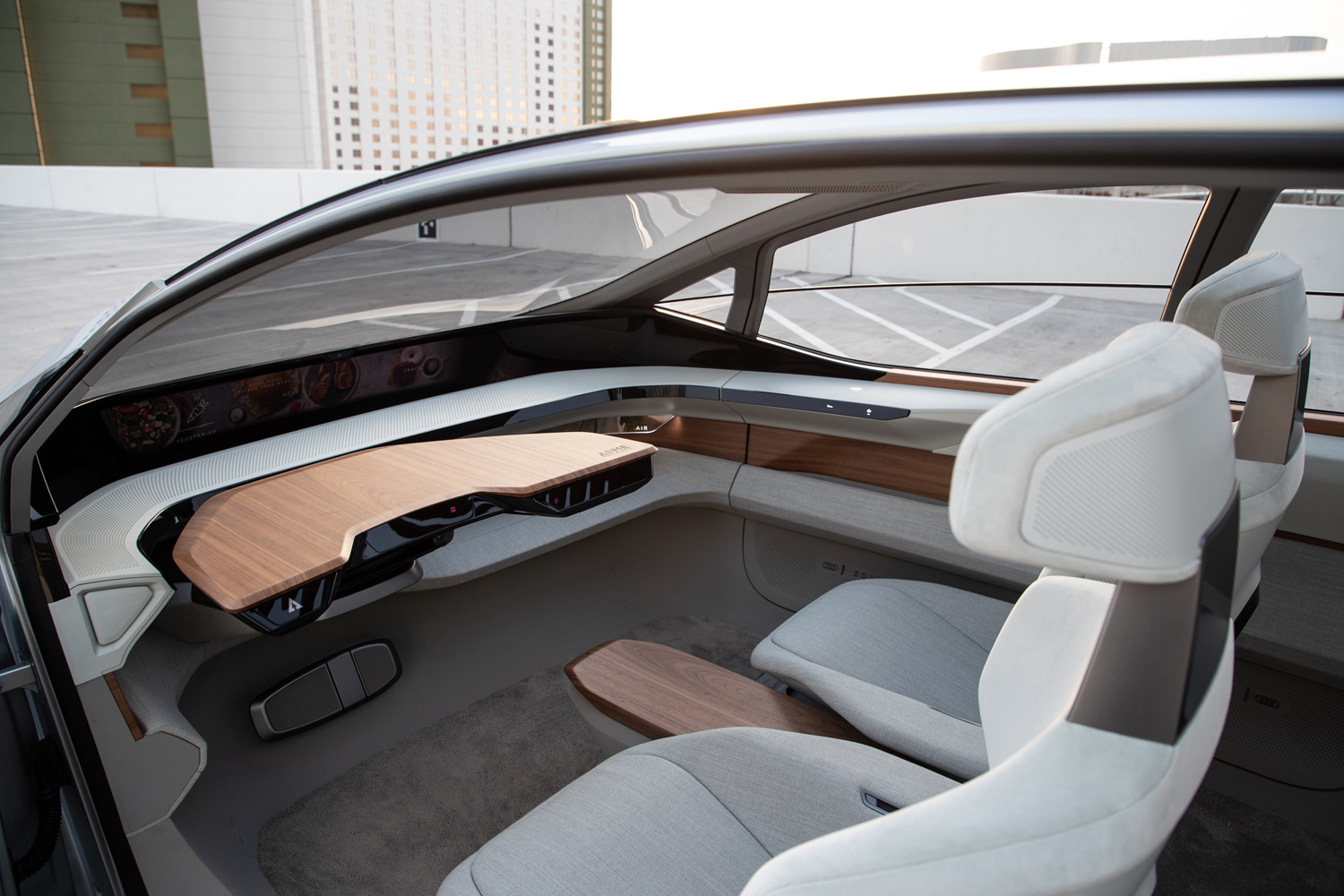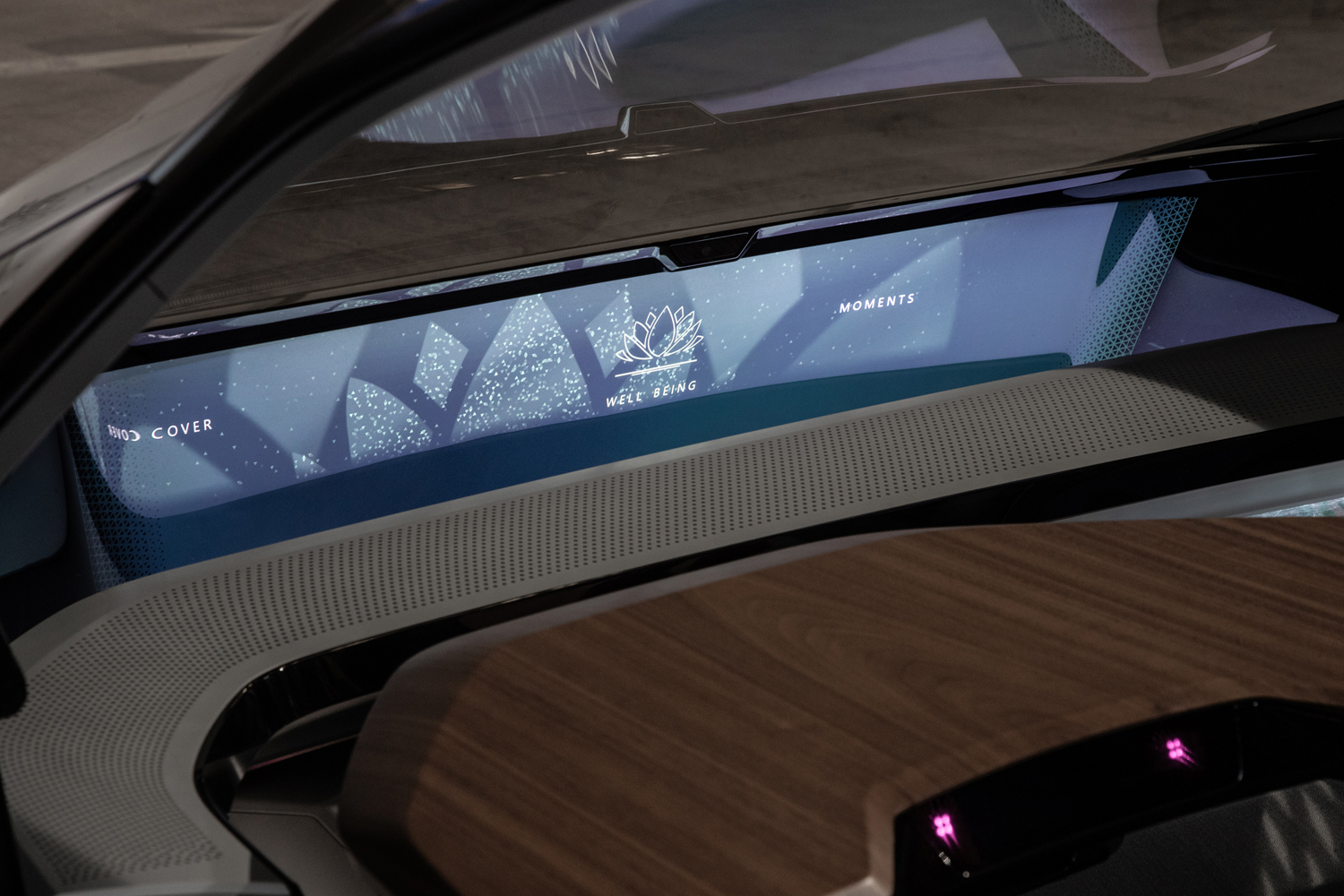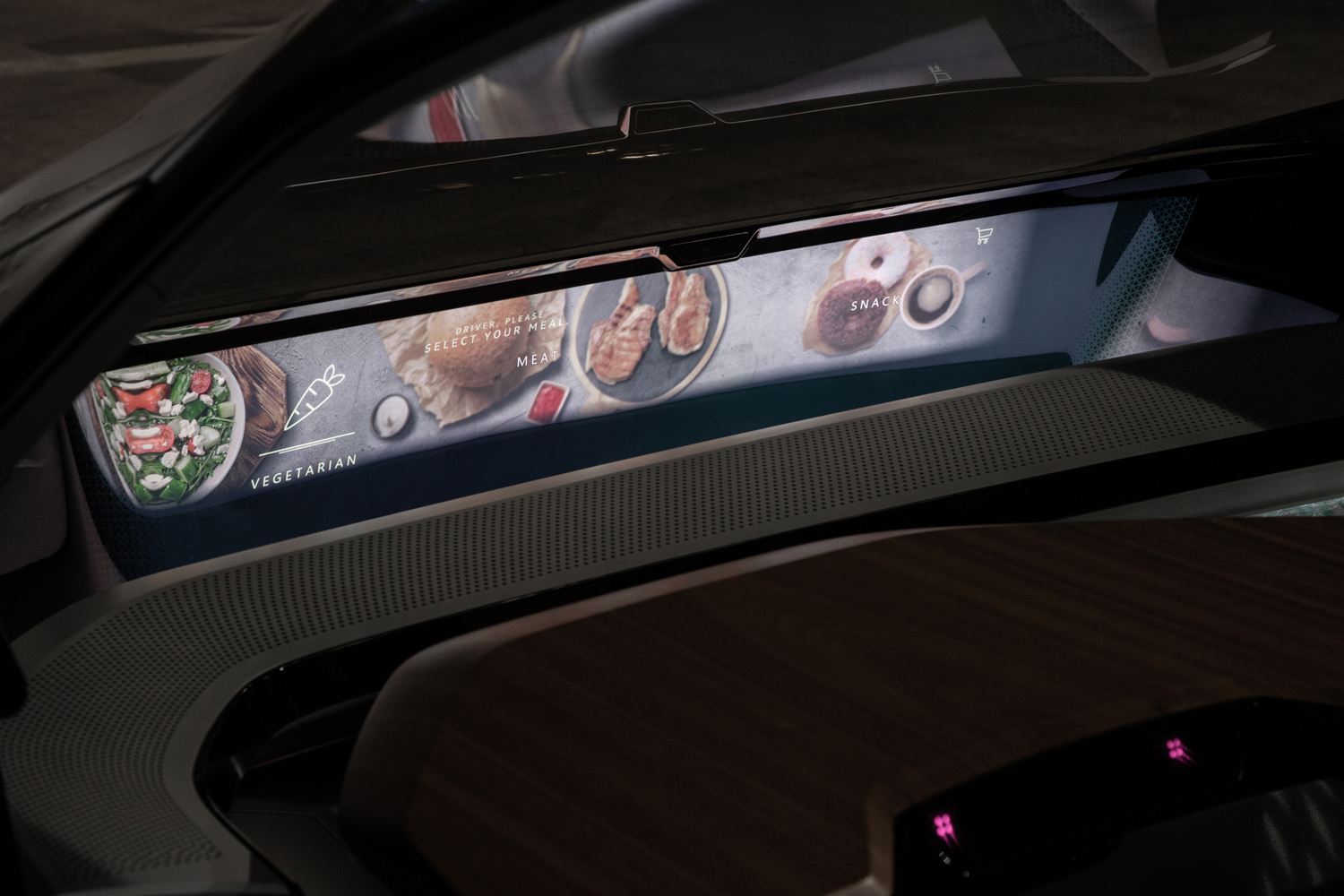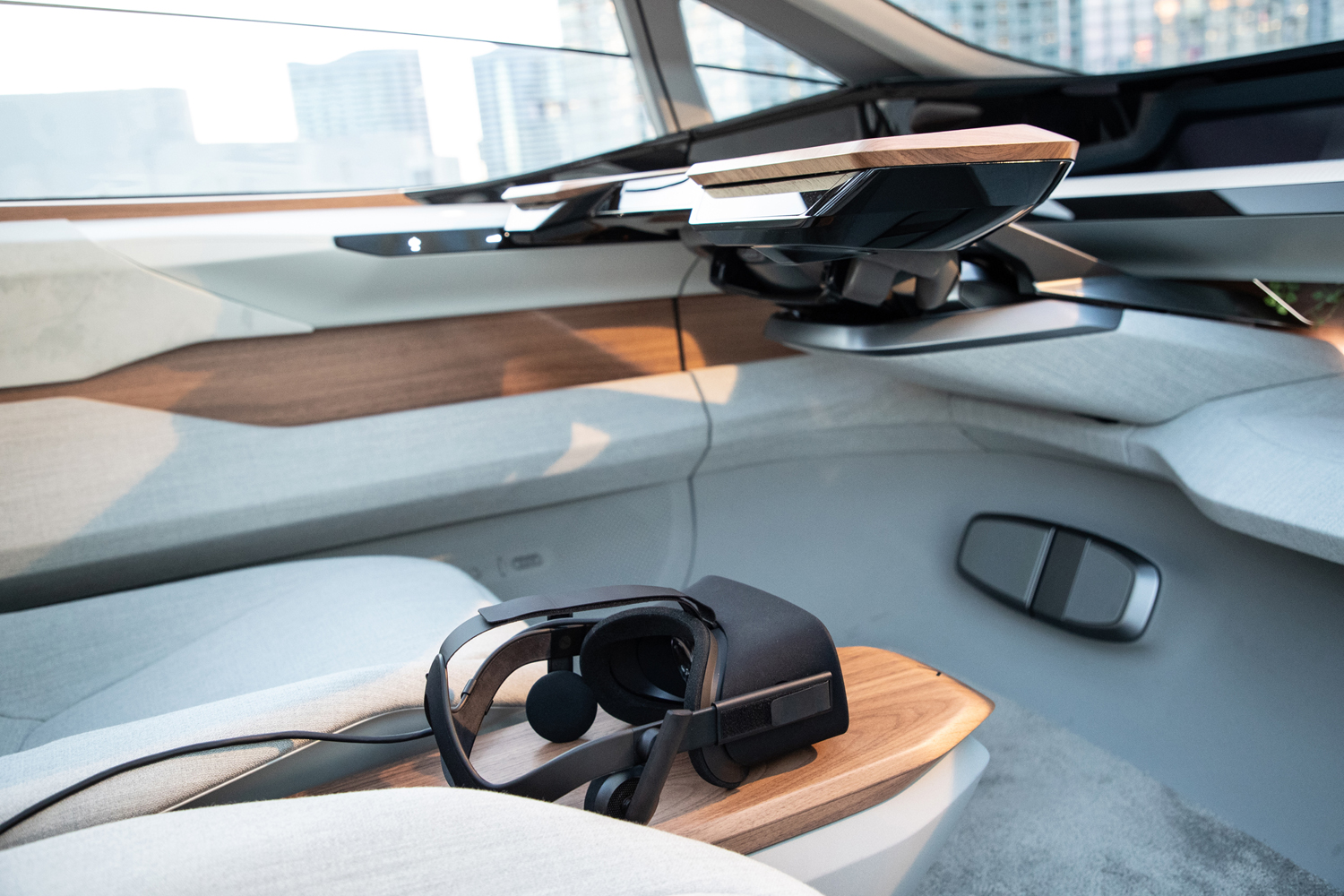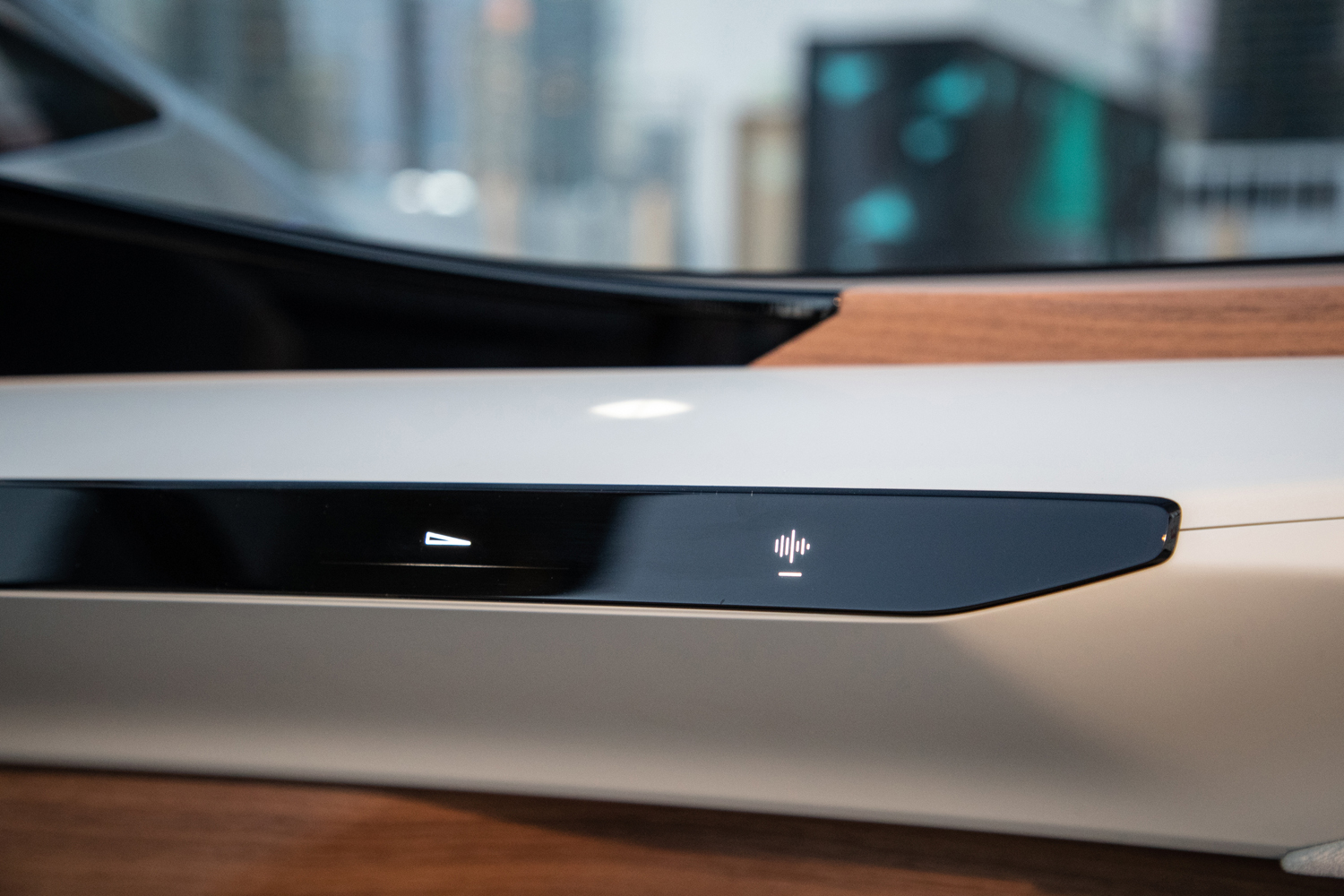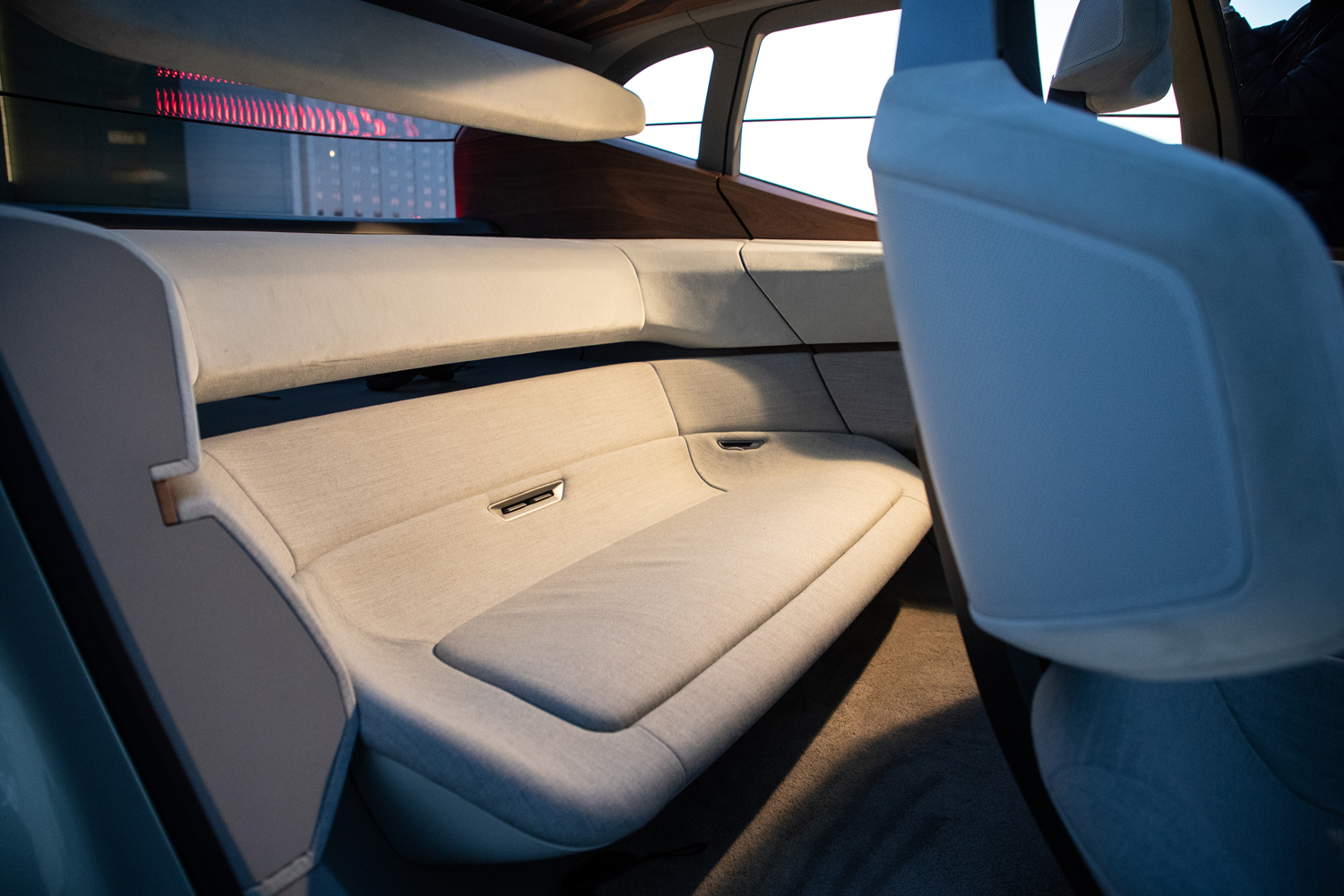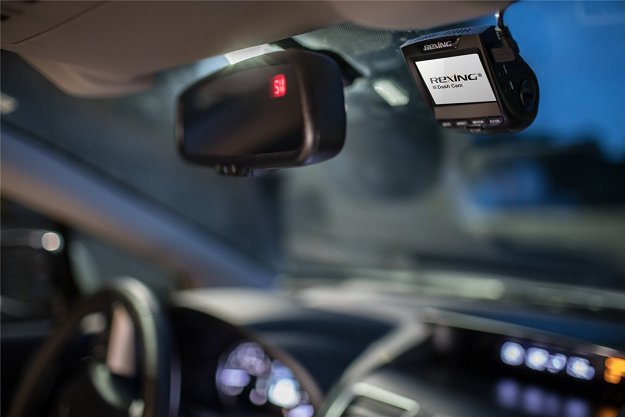“We can design everything inside the car differently if the driver becomes a passenger,” explained Immo Redeker, one of Audi’s interior designers, as the autonomous AI:Me concept carefully parked itself under an awning on the sidelines of CES 2020.
The technology packed into the AI:Me corresponds to level four on the autonomy scale. The futuristic city car is fitted with a steering wheel and pedals, but it’s capable of driving itself most of the time, especially in urban settings.
The controls are hidden out of sight when they’re not needed, and the cabin looks like nothing you’ve ever seen at a car dealership. Forget dashboards, center consoles, gauges, and air vents; the AI:Me stands out with an open, airy design. Redeker pointed out it’s built using materials more commonly found in a house than in a car.
Recent additions to the Audi range, like the RS Q8, put three screens in front of the driver’s face: one behind the steering wheel, and two on the center stack. There are none here, so what gives?
Look closely, or wait for the car to silently come to life, and you’ll notice the black stripe below the windshield isn’t a piece of decorative trim. It’s the screen. It stretches from side to side to provide key information about the car and its surroundings, and keeps the passengers entertained.
Pushing it to the outer edge of the cabin gives the front passengers extra space, but it also means they’d have to lean forward awkwardly every time they want to select a menu. To solve that , Audi developed eye-tracking technology to detect the icon you’re looking at and sense when you want to select it.
My gaze highlighted several icons as it swept across the screen. When I found the one I wanted, which in this case was the command to order a snack, I kept my stare steady for a few seconds. The system knew I was pining for a donut. It was great; unfilled, and perfectly glazed.
The system knew I was pining for a donut. It was great; unfilled, and perfectly glazed.
The steering wheel is still there, but it’s folded out of sight under a table that looks like a desk you’d find in a boutique hotel. The pedals rest lazily against the floor. Both disappeared when an Audi representative handed me a pair of virtual reality (VR) goggles that transported me to the Chinese countryside.
As the AI:Me zipped around the top of the Aria hotel in Las Vegas, I enjoyed a bird’s eye view of mountains and small villages, and the software’s movements were linked to the car’s. I’ve tested this technology before. Audi had me shoot aliens while an E-Tron lapped a track at 90 mph during CES 2019. This trip to the far east represents a second, more relaxing way to spend time in an autonomous car.
Smartphone integration could play a huge role, and I’m not talking about Android Auto. Audi developed the AI:Me with car-sharing programs in mind. If it makes production, you’re more likely to share one than buy or lease it.
It’s not unreasonable to assume the infotainment system would tailor the content it displays to each rider’s preferences by identifying them as soon as they hop in, and loading their unique profile. VR integration promises to turn the car into a theater or arcade, too.
If it makes production, you’re more likely to share one than buy or lease it.
When Audi introduced the AI:Me, it explained the concept used a 170-horsepower electric motor mounted over the rear axle. My test took place on a rooftop parking lot closed for the occasion, so I couldn’t test acceleration, braking, or the other parameters I’d normally check out after slipping behind the wheel of a car for the first time.
Whether I’ll ever get the chance to put it through its paces depends on what’s next. Redeker and the members of his team we spoke with stressed the AI:Me is purely a design study, not a thinly-veiled preview of an upcoming addition to the Audi portfolio, and the company hasn’t decided whether to put it in production yet.
The technology packed in it, however, including the stare-controlled infotainment system, will arrive in showrooms in the 2020s. They’ll surely change the way we interact with our cars when they do.
Follow our live blog for more CES news and announcements.
Editors' Recommendations
- Tesla is recruiting designers in China to create its first city car
- Qualcomm Ride platform aims to make self-driving cars simpler
- Audi balances carsharing, EVs, and sports cars as it prepares for the 2020s

